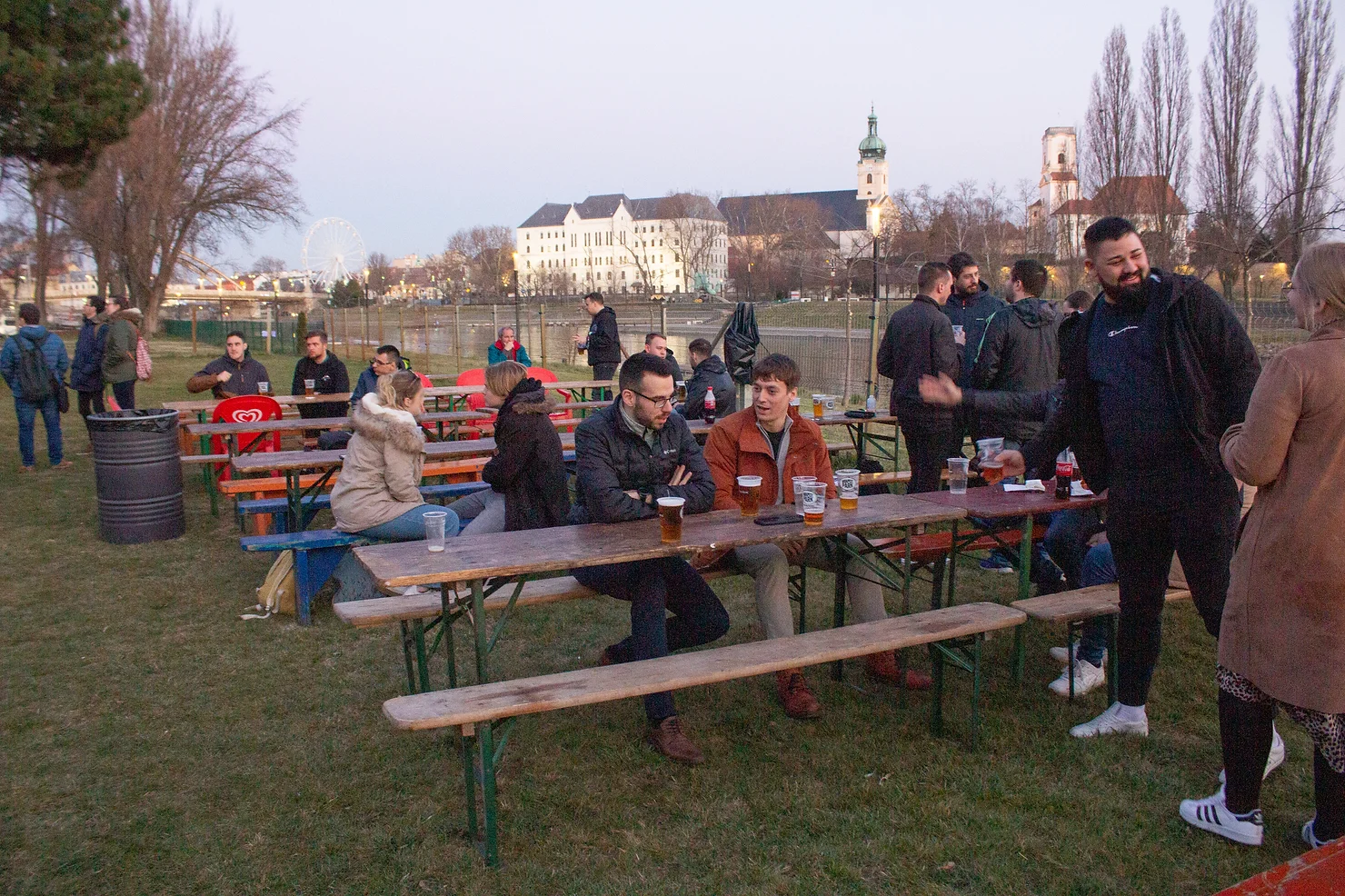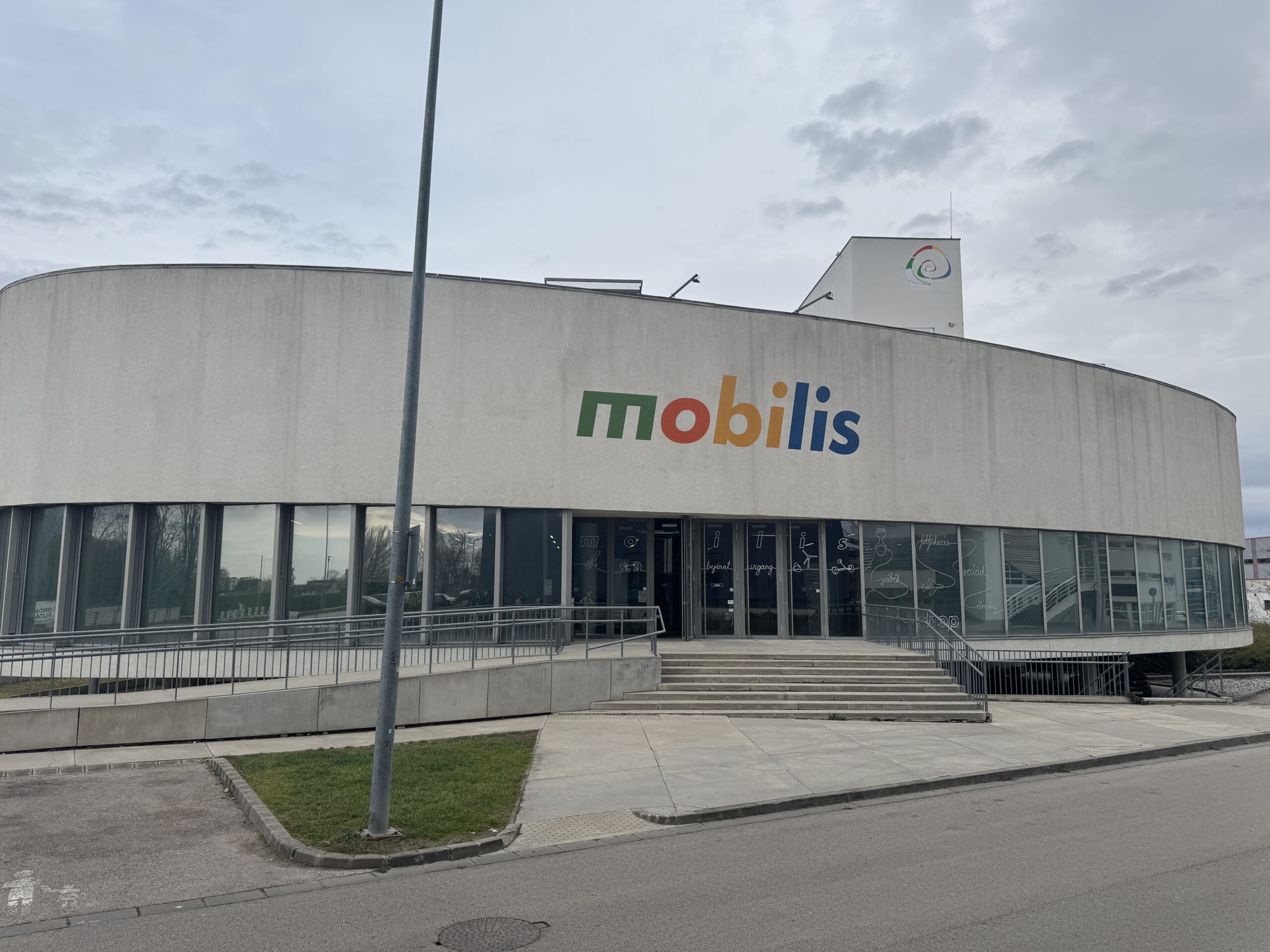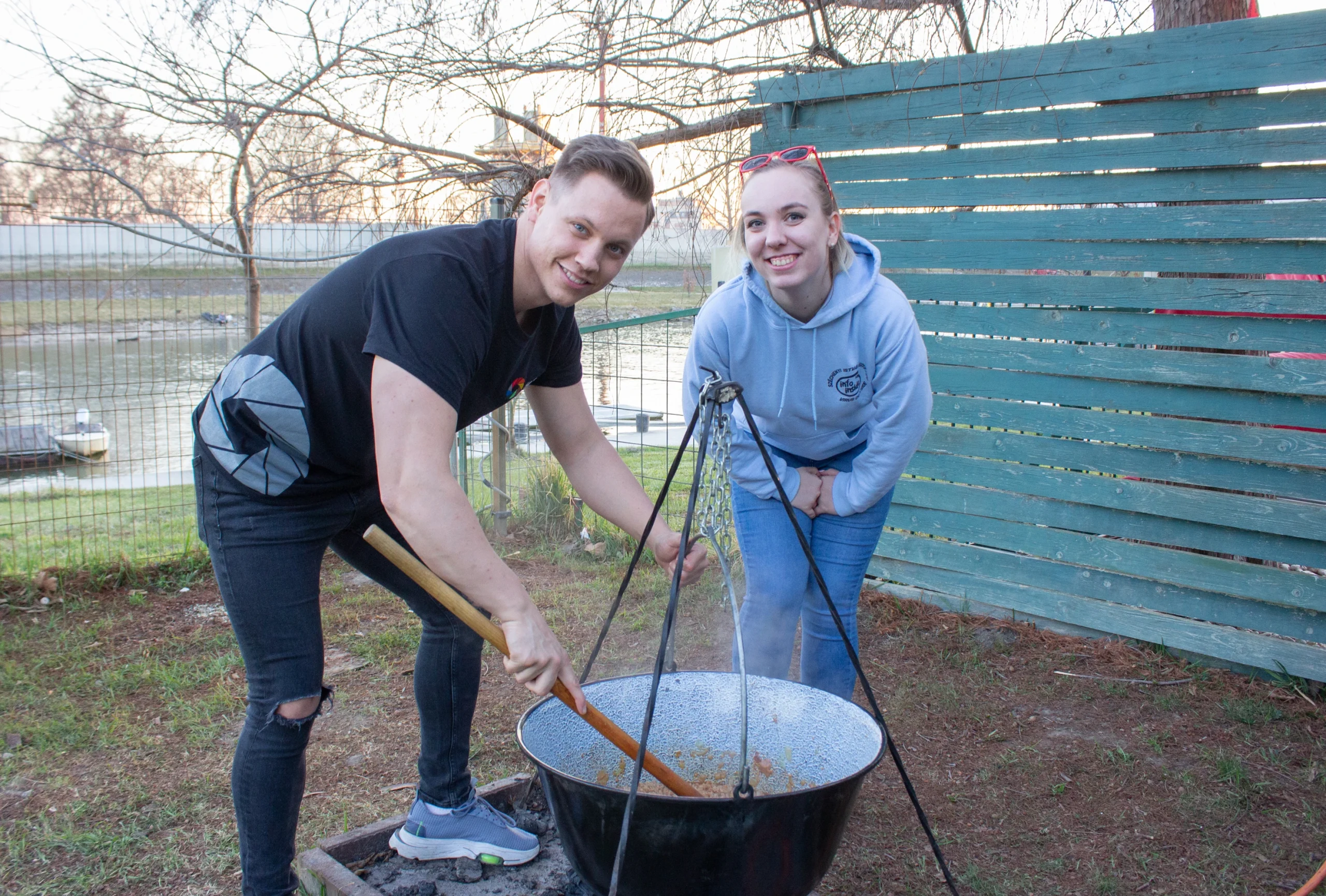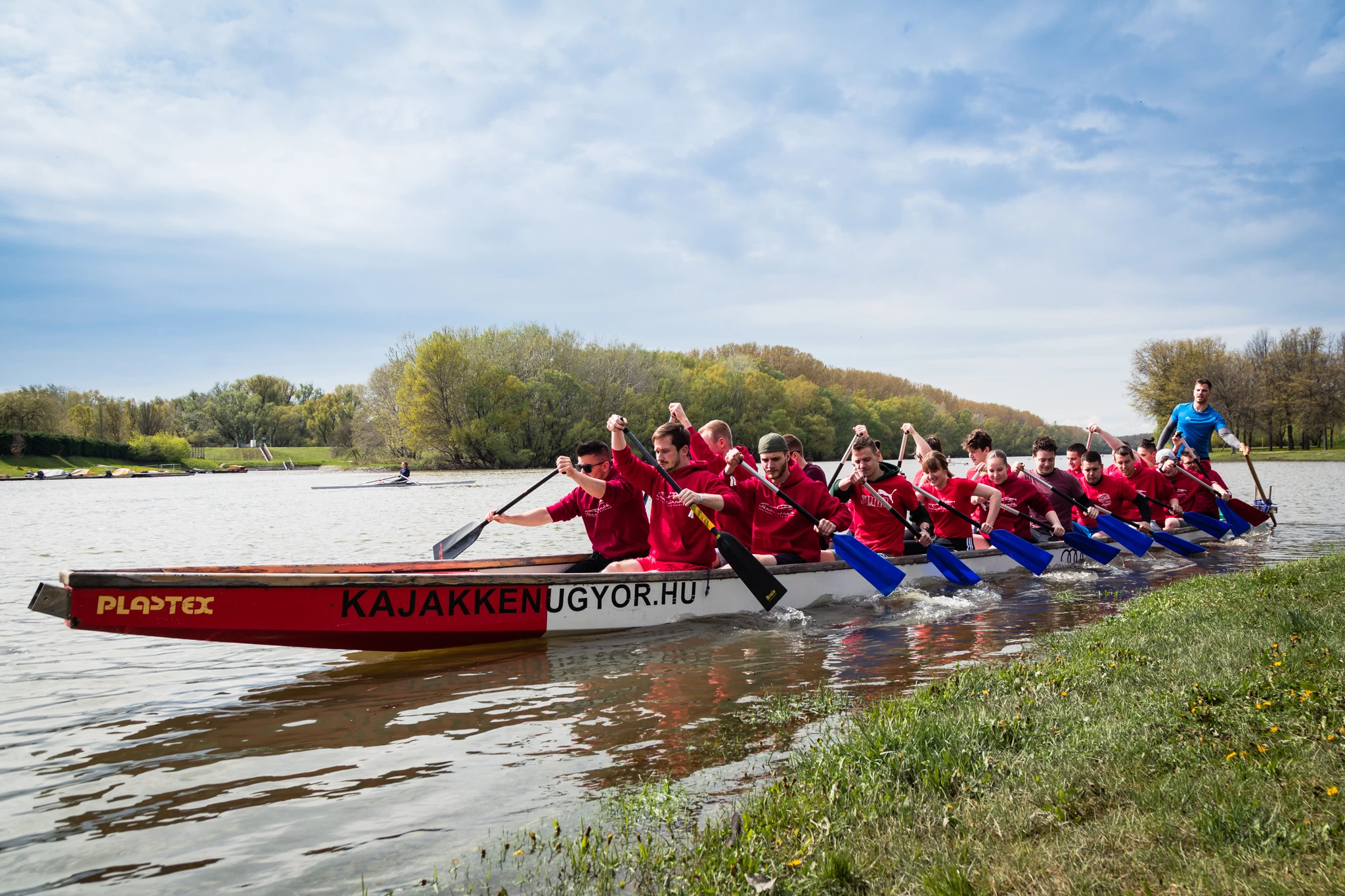There are all sorts of ways to describe the focus on building self-governing communities at departmental, school or faculty level that we’ve seen on our study tour.
But easily our favourite so far came from Tamas Somenek, who is responsible for international affairs at Széchenyi István University’s SU in Gyor in Hungary.
He described quite vividly the way in which students build their confidence by first getting involved in helping out with something small inside their faculty – and over the course of that year everyone that does undertakes short courses in various aspects of the SU before applying for a formal role.
That results in over 500 students being formally involved with a role in the SU – pretty impressive for a university of about 10,000 students. And especially interesting was the emphasis on not overburdening those volunteers – Tamas making clear that at every level, it’s teams of students that each have their own tasks that make things happen.

Work work work
One of the reasons for making sure volunteer roles are plentiful but “small” is student work – more students work alongside their studies in Hungary than the UK. Crucially, those working through Iskolaszövetkezetek (Student Cooperatives) like Meló-Diák, Fürge Diák and Mind-Diák have access to a specific type of employment agreement called a cooperative contract.
It’s exclusive to students and allows them to work with reduced tax burdens, like being exempt from social security contributions. These contracts differ from standard employment agreements and are not available to non-student workers, making them a unique benefit of student employment.

In an ideal world, it’s exactly the sort of system that the UK government ought to be facilitating as the Employment Act progresses through Parliament, reducing flexibility in casual contracts in a way that could end up hugely problematic for students and SUs. Is it too much to ask that a government that thinks students should work to fund their studies puts some effort into ensuring that they actually can?
At Széchenyi István, we wondered where they got the energy from – maybe it’s the bombshell he dropped at the end of the campus tour. Showing us around the sports hall, we mentioned that to pass a degree at Széchenyi István, students have to take part in sport, for at least 20 hours a semester and for at least four semesters out of seven.

One of the things that it was hard to fathom across Hungary was how students get to know about the myriad associations, messages, events and levels of student life. Each of the visits made vague reference to something called Neptun – but it turns out to be crucial not just for extracurriculars and representation, but to students’ education progress and achievement.
Hungary’s unified education system is used by students, SUs, academics and professional services staff to manage academic and administrative tasks across all higher education providers. On enrollment, students get a Neptun ID and password and can see the modules they’ve signed up for, timetables, details of assessment and results, feedback and all the other documents related to student life.
It facilitates a one stop shop for communication with students at every level – and is exactly the sort of shared sector infrastructure that UK HE should be thinking about in the context of tight budgets and the coming Lifelong Learning Entitlement.
One set of students we haven’t really had the chance to catch up with on the tour so far has been PGR students – a shame, because Hungary and Slovakia have some quite impressive structures that advance research students’ interests.
The Doctoral Student Council at Corvinus University, for example, represents the interests of doctoral candidates, offering support in academic, professional, and community activities. It organises workshops, assemblies, and events such as the 30th Anniversary of Doctoral Education in Hungary, and provides information on scholarships and international opportunities like the Stipendium Hungaricum Program.
Events dear boy
It’s hard, when you’re visiting universities in Europe to get a sense of some of the bigger student events. As well as the freshers camps and balls, there’s a whole bunch of fascinating events that combine being student-led with aspects of education and socialising.
Nationally, Free University 2024 brought students together for professional development, team building, and networking between universities. Key events included discussions on the training portfolio, health screening programmes, and a roundtable with former student representatives offering insights into advocacy challenges.
SzezON 2024 connected students from nine universities through innovative challenges and campus-specific activities to drive collaboration and explore diverse academic environments. Highlights included obstacle courses at the National University of Public Service, a musical workshop at the Hungarian Dance Academy, and a LEGO robot contest at Edutus University.

Locally, the Office of Self-motivated Groups (ÖCSI) at Corvinus University integrates first-year students in Hungary through events like and East-Central Europe’s largest Freshers’ Ball – all student-run.
Then BME Egyetemi Napok is Budapest’s largest student (run) festival, held annually at the Budapest University of Technology and Economics. The event, featuring live concerts, DJ performances, and themed stages such as the Acoustic and Tech stages, attracts thousands of attendees over multiple days.
Over in Gyor, Széchenyi University Days is held in April and features concerts by major Hungarian bands, sports events, cultural showcases, and unique activities like a World Café forum for students to voice their ideas. After a two-year pause due to the pandemic, the student potroast tradition returned last year. These events uniquely blend community cooking with student networking and have become a defining feature of the campus – alumni frequently revisit these gatherings, building ties across generations, while thematic events add a twist to the tradition.

And this year Széchenyi István will host the 2025 EFOTT Festival in July, a major summer event for students offering cultural, educational, and entertainment programs.
One other thing before we leave Hungary – and that’s the sort of agreements that govern the relationship between SUs and universities. At BME Hallgatói és Doktorandusz Jogviszonyból Származó Kollektív Jogok Szabályzata specifically provides students and doctoral candidates with extensive representation and governance rights, including participation in decision-making processes through elected representatives and voting rights in university and faculty-level committees dealing with academic and institutional matters.

Students are also represented in key areas such as housing allocation, budget decisions, and welfare policies – think of an MOU between an SU and a university – but one that’s less about whether you can lose the log, and more about guaranteed representation rights on actual issues.
We’re off to Slovakian capital Bratislava now, where we’re going to check out an entire student town on the edge of the city. Dobrú noc.





















